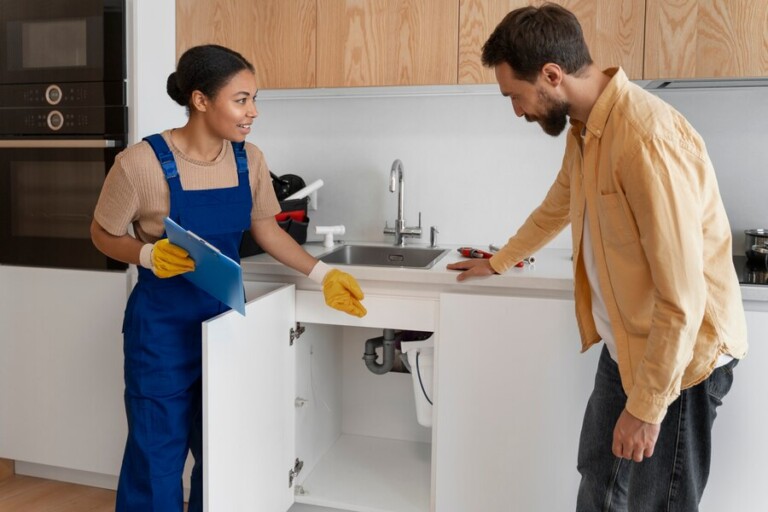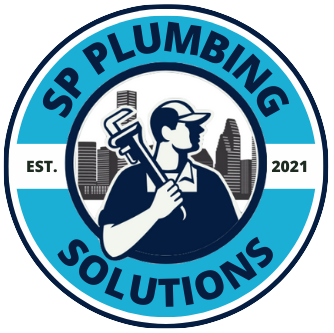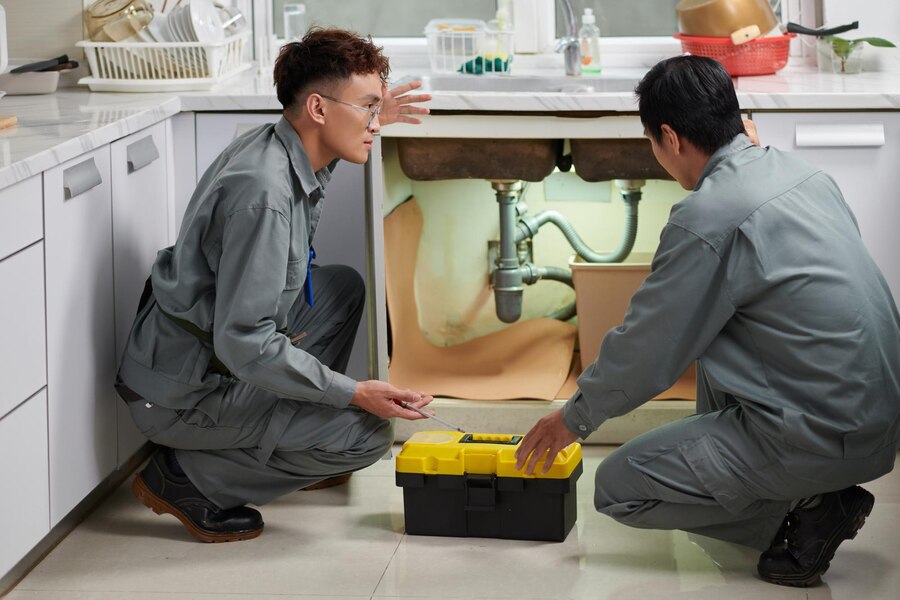Navigating DIY Plumbing versus Hiring Professionals

Embarking on home plumbing projects can be both empowering and daunting. Understanding when to tackle tasks yourself and when to enlist the expertise of a professional plumber is crucial for ensuring successful outcomes. This comprehensive guide explores the intricacies of DIY plumbing vs. when to call a professional, providing valuable insights to empower your decision-making process.
Whether it’s a simple repair like fixing a leaky faucet or a more complex project such as a bathroom renovation, knowing your limits and recognizing when professional help is needed can prevent costly mistakes and ensure efficient plumbing solutions. By weighing each approach’s benefits and challenges, you’ll confidently navigate your plumbing endeavors and achieve optimal results for your home.
Pros and Cons of DIY Plumbing
DIY plumbing allows homeowners to save money on labor costs and gain a sense of accomplishment. Those with basic plumbing knowledge can easily handle many simple plumbing tasks, such as fixing minor leaks, replacing faucets, or installing new fixtures. Additionally, DIY projects can often be completed on your schedule without waiting for a professional’s availability.
However, there are significant drawbacks to consider. DIY plumbing requires a certain level of skill and knowledge. Mistakes can lead to costly water damage, plumbing system failures, or even personal injury. Furthermore, DIYers may not have access to specialized tools or equipment for more complex tasks. It’s important to realistically assess your capabilities and the project’s complexity before opting for a DIY approach.
Types of DIY Plumbing Projects
DIY plumbing projects encompass a variety of tasks that homeowners can undertake independently, ranging from minor repairs to basic installations of fixtures and components.
- Fixing Leaky Faucets: Replacing worn-out washers or seals to stop leaks and conserve water.
- Unclogging Drains: Using plungers, drain snakes, or environmentally friendly solutions to clear blockages in sinks, showers, or toilets.
- Replacing Shower Heads: Upgrading to more efficient models or replacing worn-out shower heads for improved water flow.
- Installing Toilet Components: DIY installation of toilet fill valves, flappers, or flush mechanisms to address common issues like running toilets.
- Replacing Kitchen Faucets: Upgrading kitchen faucets for aesthetic appeal or functionality, ensuring proper sealing and connection to water supply lines.
Skills and Tools Needed for DIY Plumbing
Successful DIY plumbing projects require solid plumbing knowledge and hands-on skills. Essential skills include understanding how to shut off water supplies, identifying standard plumbing components, and using tools safely and effectively. Essential tools for DIY plumbing include adjustable wrenches, pipe wrenches, pliers, pipe cutters, and a plumber’s snake for clearing clogs.
Additionally, DIY should have a good understanding of plumbing materials such as PVC, copper, and PEX and knowledge of pipe fittings and connections. It’s important to research specific tasks thoroughly before beginning and to closely follow manufacturer instructions and local plumbing codes. Developing these skills and acquiring the necessary tools will enable homeowners to confidently tackle many DIY plumbing projects while minimizing the risk of errors and complications.
When to Consider DIY Plumbing
DIY can be a cost-effective and satisfying solution when facing minor plumbing issues that are within your skill level and do not involve complex systems or potential safety hazards.
Minor Leaks and Drips
DIY plumbing is suitable for addressing minor leaks from faucets, pipes, or fixtures where the issue is visible and easily accessible. Tasks such as replacing worn-out faucet washers, tightening loose connections, or applying plumber’s tape to seal small leaks can often be managed effectively without professional assistance.
Clogged Drains
Many homeowners can clear simple clogs using household remedies like baking soda and vinegar or tools such as plungers or drain snakes. DIY methods can effectively resolve common drain blockages in sinks, showers, or toilets without professional intervention.
Replacing Fixtures
Installing new fixtures such as sinks, faucets, or showerheads with straightforward installation instructions is well-suited for DIY projects. Ensuring proper alignment, sealing connections with plumber’s putty or tape, and following manufacturer guidelines can result in a successful installation with minimal risk.
Routine Maintenance
DIY plumbing tasks related to routine maintenance, such as cleaning faucet aerators to improve water flow or checking under sinks for leaks, are manageable for homeowners. Regular inspections and proactive maintenance can help identify and address minor issues before they escalate into more significant problems.
Accessible Shut-Off Valves
Projects where shut-off valves are easily accessible and necessary, such as replacing a toilet’s flush mechanism or a dishwasher hose, are ideal for DIY enthusiasts. Ensuring water is adequately turned off before starting work prevents accidents and facilitates safe and effective repairs or replacements.
Common DIY Plumbing Mistakes to Avoid
DIY plumbing projects offer homeowners the opportunity to save money and learn valuable skills, but they also come with inherent risks if not approached carefully. Common mistakes such as inadequate pipe sealing leading to persistent leaks, improper tools or techniques resulting in damaged fixtures, and failing to shut off the water before beginning work can escalate into costly repairs or pose safety hazards.
Moreover, disregarding local plumbing codes and safety regulations can incur fines and jeopardize household safety.Thorough preparation and research are crucial to mitigate these risks. Ensuring you have the right tools and materials, meticulously following manufacturer instructions and plumbing codes, and knowing when a task exceeds your capabilities and requires professional intervention are essential.
Learning from experienced sources, whether through guides or professional consultations, enhances understanding and reduces the likelihood of errors. By taking these precautions, DIY enthusiasts can confidently tackle plumbing projects while safeguarding their homes and budgets.
Benefits of Hiring a Professional Plumber
Hiring a professional plumber brings numerous benefits that go beyond mere convenience. Their expertise ensures efficient problem-solving and long-lasting solutions for your plumbing needs.
- Expertise and Experience: Professionals undergo extensive training to efficiently and precisely handle a broad spectrum of plumbing issues, ensuring effective solutions and long-term reliability for homeowners.
- Quality Workmanship: They consistently deliver high-quality repairs and installations that adhere strictly to industry standards, ensuring durability, safety, and compliance with regulatory requirements for optimal performance and customer satisfaction.
- Access to Specialized Tools: Professionals leverage advanced tools and equipment not typically available to homeowners. This enables them to tackle complex plumbing tasks precisely and efficiently and ensure thorough and practical solutions.
- Troubleshooting Skills: Professionals possess the expertise to accurately diagnose plumbing issues, identify root causes, and provide customized solutions that address specific problems effectively, ensuring lasting results and homeowner satisfaction.
- Compliance with Regulations: Professional plumbers prioritize adherence to building codes and safety regulations in all their work, guaranteeing that installations and repairs are compliant, safe, and meet industry standards for optimal functionality and safety.
Types of Plumbing Issues Requiring Professional Help
Due to their complexity and potential risks, specific plumbing issues demand the expertise of licensed professional plumbers. Problems with main water lines, sewer lines, water heaters, or extensive leaks and pipe damage require specialized knowledge and equipment beyond typical DIY capabilities. Additionally, complex installations like whole-house plumbing systems or bathroom remodels necessitate professional skills to ensure proper functionality and compliance with building codes.
Professional plumbers are trained to handle emergencies such as burst pipes, sewage backups, and gas line issues safely and efficiently. Their experience ensures swift resolution of critical situations, preventing further damage and safeguarding homeowners from potential hazards. By adhering to regulations and industry standards, they uphold the integrity and reliability of plumbing systems, providing peace of mind and long-term assurance for homeowners.
Choosing the Right Professional Plumber
Choosing a reputable professional plumber requires thorough vetting to guarantee dependable service and satisfaction. Start by confirming the plumber’s license and insurance status, ensuring compliance with local regulations and protection against liabilities. Checking references and online reviews offers insights into their reliability and quality of artistry.
Obtaining multiple estimates allows for cost comparison and ensures transparency in pricing. Inquire about warranties covering artistry and materials to safeguard against potential post-service issues. Availability for emergencies and prompt response during critical situations are crucial.
Effective communication throughout the project establishes clear expectations regarding costs, timelines, and the scope of work, minimizing misunderstandings and promoting a positive client-plumber relationship. By addressing these considerations thoughtfully, homeowners can confidently select a professional plumber who meets their needs and ensures peace of mind with every plumbing project.
Cost Considerations: DIY vs. Hiring a Professional
The cost of plumbing projects varies significantly depending on factors such as the complexity of the task, materials needed, and geographic location. DIY projects typically incur lower upfront costs as homeowners purchase materials and invest personal time in labor. However, potential mistakes or incomplete repairs may lead to additional expenses for professional corrections.
Hiring a professional plumber involves upfront costs for labor and materials, often including service fees or hourly rates. Despite higher initial expenses, professional services offer long-term value through guaranteed artistry, reduced risk of future repairs, and compliance with safety standards. Homeowners should weigh these factors based on project requirements, personal skill level, and budget constraints when deciding between DIY and professional plumbing services.
Understanding the balance between DIY plumbing and professional services is essential for every homeowner. While DIY projects can save money and offer a sense of accomplishment, they carry risks and limitations. Professional plumbers bring expertise, tools, and compliance with regulations, ensuring reliable solutions and peace of mind. By assessing project complexity, personal skills, and potential costs, homeowners can make informed decisions for their plumbing needs.
For expert plumbing services in your location, trust SP Plumbing. Whether you need repairs, installations, or maintenance, our licensed professionals are ready to assist. Contact SP Plumbing today at 281-727-6798 for reliable solutions and exceptional service. Your plumbing deserves the best; let us handle it with expertise and care.

